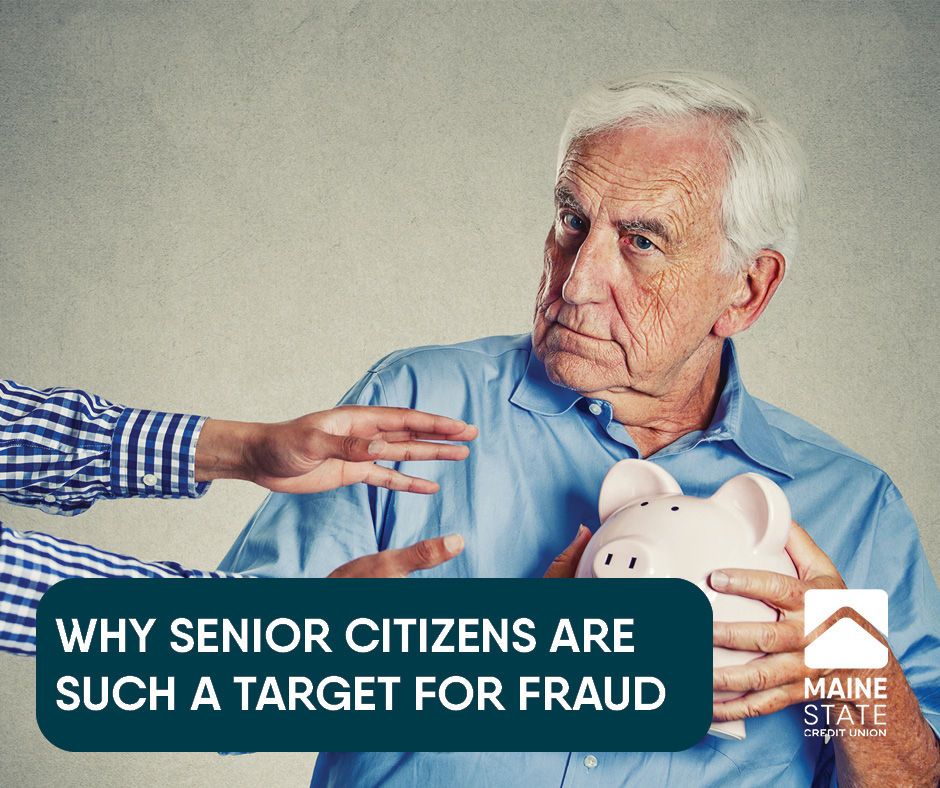Why Are Senior Citizens Targets for Fraud
Fraud Target: Senior Citizens
Senior citizens are more likely to have a significant "nest egg," own their home and have excellent credit, making them attractive targets to con artists. It is important to understand the risks associated with common scams so that you can better protect yourself or educate someone close to you about the warning signs.
- People who grew up in the 1930s, 1940 and 1950s were generally raised to be polite and trusting. Con artists exploit these traits, knowing that it is difficult or impossible for these individuals to say “no” or just hang up the telephone.
- Older Americans are less likely to report a fraud because they don’t know who to report it to, are too ashamed at having been scammed, or don’t know they have been scammed. Elderly victims may not report crimes, for example, because they are concerned that relatives may think the victims no longer have the mental capacity to take care of their own financial affairs.
- When an elderly victim does report the crime, they often make poor witnesses. Con artists know the effects of age on memory, and they are counting on elderly victims not being able to supply enough detailed information to investigators. In addition, the victims’ realization that they have been swindled may take weeks— or more likely, months—after contact with the fraudster. This extended time frame makes it even more difficult to remember details from the events.
- Senior citizens are more interested in and susceptible to products promising increased cognitive function, virility, physical conditioning, anti-cancer properties, and so on. In a country where new cures and vaccinations for old diseases have given every American hope for a long and fruitful life, it is not so unbelievable that the con artists’ products can do what they claim.
What to Look For and How to Protect Yourself and Your Family
Medical Equipment Fraud: Equipment manufacturers offer “free” products to individuals. Insurers are then charged for products that were not needed and/or may not have been delivered.
“Rolling Lab” Schemes: Unnecessary and sometimes fake tests are given to individuals at health clubs, retirement homes, or shopping malls and billed to insurance companies or Medicare.
Services Not Performed: Customers or providers bill insurers for services never rendered by changing bills or submitting fake ones.
Medicare Fraud: Medicare fraud can take the form of any of the health insurance frauds described above. Senior citizens are frequent targets of Medicare schemes, especially by medical equipment manufacturers who offer seniors free medical products in exchange for their Medicare numbers. Because a physician has to sign a form certifying that equipment or testing is needed before Medicare pays for it, con artists fake signatures or bribe corrupt doctors to sign the forms. Once a signature is in place, the manufacturers bill Medicare for merchandise or service that was not needed or was not ordered.
Media Contact:
Jennifer Roper
Vice President of Marketing
200 Capitol Street
Augusta, ME 04330
Email: jroper at mainestatecu dot org
Phone: 207-242-4290

